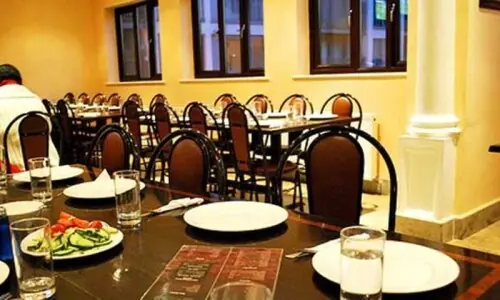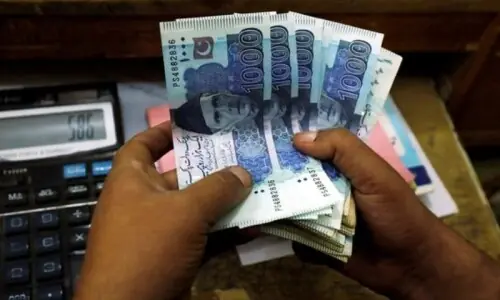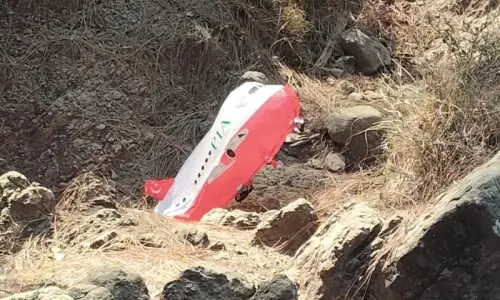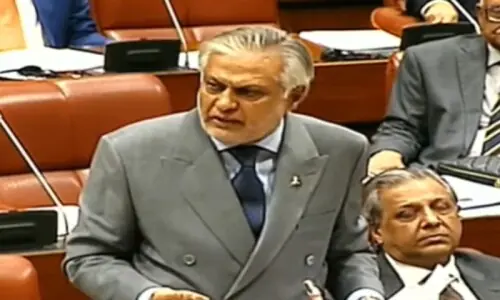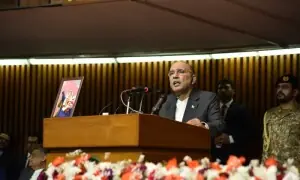ISLAMABAD: Hundreds of displaced residents from the demolished I-11 katchi abadi gathered at the site of the settlement on Saturday to call for the recognition of their right to housing and their resettlement, at a demonstration organised by the Awami Workers Party (AWP).
They were accompanied by dozens of children and AWP party workers, as well as the prominent low-income housing expert Tasneem Siddiqui, and artists and students from the twin cities.
The demonstration also featured a mural painting with members of The Fearless Collective, an activist art group. The murals featured images of the evicted community.
Nida Mushtaq from The Fearless Collective said she was standing in solidarity with the displaced residents of I-11.
She said their struggle was an exemplary instance of ordinary people taking on the fear of oppression and dispossession.
She said the demolition of the abadi did not just mean the destruction of physical structures, but of an entire community inhabiting a shared public space.
Activist art collective paints mural at site of demolished katchi abadi in solidarity with displaced residents
She said the mural intended to emphasise the importance of a dignified existence, including access to housing and public spaces for all.
The I-11 katchi abadi was demolished by the Capital Development Authority (CDA) on Jul 31, 2015, on orders from the Islamabad High Court.
Thousands of people were displaced by the operation, and have since been living in various parts of Islamabad and Rawalpindi.
Speaking at the demonstation, AWP I-11 president Fazal Shah said that six months had passed since the eviction of the I-11 residents, and CDA had yet to resettle them as per the National Housing Policy.
He said that, since the eviction, hundreds of families had been forced into homelessness and poverty and the health and education of thousands of children had been compromised.
AWP’s elected councillor from union council (UC) 44, Nasir Khan, said the displaced residents were not asking for charity but for the recognition of their fundamental rights, as the Supreme Court itself has recognised.
“The residents of I-11 and other katchi abadis are willing to fulfil whatever legal and financial obligations due on them for accessing dignified housing, but the government and CDA needed to fulfil their responsibilities for allocating land and resources for the purpose as well,” Mr Khan said.
AWP Punjab president Aasim Sajjad Akhtar said their stance had veen vindicated by the Supreme Court in the proceedings of the petition on the right to housing, which had recognised that katchi abadis are a symptom of the failure of the state to fulfil its constitutional responsibilities to provide housing for the poor.
He said it was time for institutions such as CDA to demonstrate their practical commitment to this right, through the development of a model low-income housing scheme for the evicted I-11 residents, and serve the basic human needs of all their citizens including the working class.
Mr Siddiqui, who is known for building Khuda Ki Basti in various parts of Sindh, said the country’s urban planning paradigm needed to be transformed completely, because it was currently based solely on the interested of a small, elite class.
He said Islamabad, in particular, had not been planned in accordance with the needs of the poor, which has resulted in widening inequality and the proliferation of katchi abadis.
He said the city also lagged behind other provinces in terms of the regularisation of informal settlements, which CDA had actively resisted.
He said he had already identified solutions to this in his report to the Supreme Court, and called for the regularisation of existing settlements and resettlement where necessary.
He said that Islamabad’s city planners needed to plan for low income housing in the long term if they wanted to prevent the emergence of more katchi abadis, and suggested that two sectors be allocated to low-income housing.
Published in Dawn, January 10th, 2016


